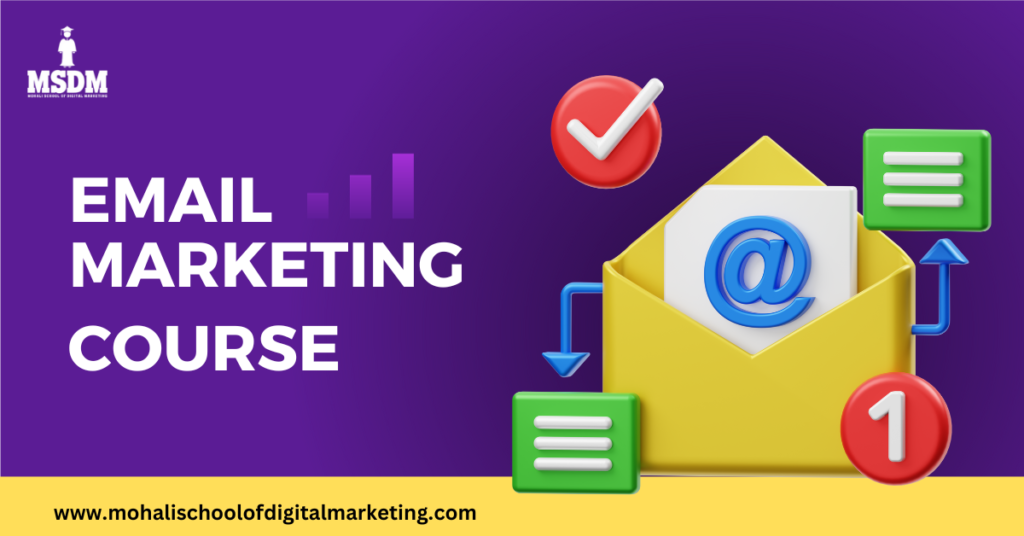Introduction
In the dynamic landscape of digital marketing, staying ahead requires more than just theoretical knowledge. One area where this rings especially true is in email marketing. As businesses increasingly rely on email campaigns to engage with their audience, mastering the practical side of email marketing is crucial. In this blog post, we’ll explore the importance of hands-on learning in an Email marketing course and how it can empower marketers to create impactful campaigns.
Learning by Doing: A Practical Approach
Traditional education often emphasises theory, leaving a gap between knowledge and application. Email marketing is no exception; it requires a hands-on approach to truly understand the nuances of crafting compelling messages and designing effective campaigns. A well-structured email marketing course recognizes this need and incorporates practical exercises to bridge the theory-practice gap. When students actively engage in creating and executing email campaigns, they gain a deeper understanding of concepts like segmentation, personalization, and A/B testing. Hands-on learning transforms abstract theories into tangible skills, empowering individuals to navigate the complexities of real-world marketing scenarios.
Real-World Simulation: Mimicking the Marketing Environment
Simulating real-world scenarios is a key component of hands-on learning in an email marketing course. By replicating the challenges marketers face daily, students can develop problem-solving skills and learn to make data-driven decisions.
For example, a hands-on exercise might involve creating a targeted email campaign for a fictional product launch. Students would need to consider factors like audience segmentation, crafting persuasive copy, and analysing performance metrics. This type of practical experience prepares them for the intricacies of managing email marketing campaigns in a professional setting.
Interactive Workshops and Case Studies
Interactive workshops and case studies play a pivotal role in a hands-on email marketing course. These sessions allow students to practically apply theoretical knowledge, get instant feedback, and adjust their strategies using real-world scenarios. In a workshop setting, students might collaboratively develop email marketing campaigns, share ideas, and troubleshoot challenges. Analysing case studies allows them to learn from successful (and not-so-successful) real-world examples, gaining insights that go beyond textbook theories.
Technology Integration: Navigating Email Marketing Course
Proficiency in email marketing platforms is a must for any modern marketer. An essential email marketing course should include practical sessions on popular email marketing tools, guiding students through the process of creating and optimising campaigns. From designing visually appealing emails to understanding automation workflows, hands-on experience with these tools is invaluable. This not only enhances technical skills but also instil confidence in navigating the diverse features of email marketing platforms.
Measuring Success: Analytics and Optimization
A key aspect of hands-on learning in email marketing involves understanding how to measure campaign success. Students should be exposed to analytics tools and learn how to interpret key performance indicators (KPIs) such as open rates, click-through rates, and conversion metrics. The ability to analyse campaign data empowers marketers to optimise their strategies continuously. Hands-on experience in interpreting analytics enables them to make informed decisions, refine their approach, and achieve better results over time.
Conclusion
The Email Marketing Course offered by Mohali School of Digital Marketing has proven to be a comprehensive and invaluable resource for individuals seeking to enhance their digital marketing skills. Throughout the duration of the course, participants have gained a deep understanding of the principles and strategies that underpin successful email marketing campaigns.

